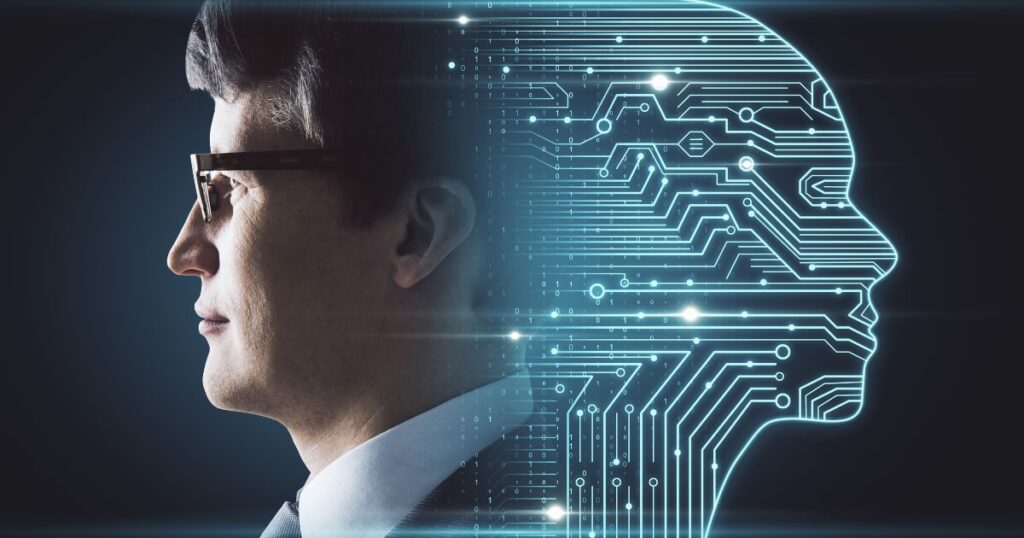
New Age: The Intelligent Machine Changes Engineering
Engineering, never the same: no longer days of calculation by hand and design proposals from imagination. Here’s to artificial intelligence (AI), changing every aspect, from the first flash of an idea right down to the product it turns into. This technology is so powerful that it equips engineers with their ability to create more complex, efficient, and innovative solutions than was previously possible.
In this blog, we’ll delve into the exciting intersection of engineering and AI. We’ll uncover how AI is:
Redesigning Design: Algorithms would scan millions of pieces of data to come up with the best solution to a given problem, thus taking the “outside the box” nature of design to previously unimaginable extremes.
Simulation Up and Running: Imagine AI is able to create simulations that more closely mirror reality; engineers would be able to test designs in the virtual world before attempting construction. Every potential defect in the design would be revealed prior to construction work beginning.
Operations Optimized: With sensors and other devices analyzed through numerous sources, AI can sharpen manufacturing operations, minimize waste, and maximize efficiency within an organization.
Evolving Control Systems: AI-enabled control systems have a potential to respond to changing conditions faster than humans do. This could open up avenues for faster development in robotics and autonomous systems.
Engineering a Brighter Future: How Artificial Intelligence is Revolutionizing Engineering
Artificial intelligence (AI) is rapidly revolutionizing every field that comes into its stream and has, by no means, left engineering unscathed. From designing and simulating to optimising and controlling, AI is empowering engineers to develop more complex, efficient, and innovative solutions.
In this discussion, we’ll explore the exciting world of applications of AI in engineering. Let’s take a look at how AI is
Revolutionizing Design AI algorithms can quickly process huge amounts of data to find patterns and relationships that even the most skilled engineer might miss. Thus, engineers today are able to design more efficiently: lighter and stronger bridges, for instance, or airplanes that cut through the air with less friction.
Enhanced Simulation: AI can be used to produce highly realistic simulations of engineering systems. This means engineers can test their designs under virtual stress, which would otherwise be detected in the real world.
Process Optimization: AI can analyze sensor data and other inputs, optimize the manufacturing processes, help to minimize waste and improve efficiency, and ward off costly equipment failures by predictive maintenance powered by AI.
This imparts greater control systems by responding to quickly changing conditions, such as those experienced by an application like a self-driving car and autonomous robots.
Real-World Examples:
These are just a few examples of how AI is transforming engineering:
- Civil engineers are using AI to design resilient structures in earthquakes and for traffic flow optimization in cities.
- Mechanical engineers are applying AI to develop sophisticated robots that can perform task-assembling in industries.
- Aerospace engineers are using AI for designing and controlling future aircrafts.

Future of Engineering with AI:
The future of engineering is undoubtedly inseparable from AI. Further development of the technology will witness more pioneering applications in coming days.
Here are some exciting possibilities:
AI-powered design assistants that can collaborate with engineers in the most complex projects.
Self-healing materials that can detect and repair damage through AI.
Fully autonomous robots capable of performing hazardous or boring engineering tasks.
Impact on the Engineers by AI:
Therefore, AI is not something to replace engineers with machines, but rather an effective tool to enhance human capabilities. The engineers well-versed with AI are sought after as demand for such technologies grows with leaps and bounds.
Going Beyond the Hype: Challenges and Considerations for AI in Engineering
While the potential of AI in engineering cannot be doubted, its application brings with it several challenges and considerations. Here’s an in-depth look into some of these areas:
Data is King (and Queen):
AI runs on data. For engineering applications, this translates to available high-quality relevant data sets in this domain. Collecting, cleaning, and labeling this data can be a significant undertaking.
Explainability and Trust:
Much of modern AI algorithms are sophisticated “black boxes.” That is, the decision-making process is opaque. In engineering applications, where safety and reliability are concerned, it’s important to understand how an AI system arrived at its conclusion. Trust in AI models has recently had one of its biggest boosts in terms of developing interpretability, so the models can be trusted.
Ethical Considerations
It does open the possibility of reinforcing extant biases resident in data being used during training. The desire for fairness and to avoid unintended consequences is critical, especialy in some fields, such as engineering. For instance, an AI traffic management scheme may inadvertently create an ‘unfair’ gap in opportunities for one or another demographic.
The Human Factor:
AI will not replace the human engineer. Engineering judgment, creativity, and problem-solving skills will always be needed. Rather, the future lies with a collaborative approach where AI empowers engineers to become more efficient and effective.
Closing the Skills Gap:
When AI rises, the engineering workforce needs upskilling and reskilling. Engineers must learn what AI can and cannot do so that it can be applied in a way that produces an optimal outcome and workflow.
Security Concerns:
The same threats as against AI systems exist, because even the AI systems themselves might be vulnerable to hacking or manipulation. Effective robust security measures must be in place to ensure the integrity and reliability of AI-powered engineering systems.
Getting Started with AI in Engineering

For engineers interested in applying AI, here are some immediate steps:
Identify opportunities: Look for repetitive tasks, complex simulations or areas where data analysis becomes the nerve of things. These can be easy first places where AI could add value.
Explore existing tools and libraries: A few open-source and commercial AI tools and libraries exist for engineers. Researching what is available is a good starting point.
Start small and learn by doing: Do a pilot project to learn practical experience with AI. Find one small, well-defined problem and measure the impact of your AI solution.
Get training and resources: There are abundant online courses, workshops, and communities that will be there to help engineers build knowledge and acquire skills in AI.
With much thought and concern of the challenges and issues mentioned above, AI has great potential in becoming a game changer within the industry of engineering. And with engineers embracing such strong technology, innovation and progress cannot be contained.
Conclusion:
AI is giving a new turn to the world of engineering, promising mankind great possibilities of unbridled technological advancement and innovation. With AI, engineers will be empowered to solve the most difficult problems on earth and make life easier for everyone.


